LIVRES - THEME : BUSINESS & ECONOMICS,E-Commerce,General (see also COMPUTERS,Electronic Commerce)
LIVRES - BUSINESS & ECONOMICS,E-Commerce,General (see also COMPUTERS,Electronic Commerce)
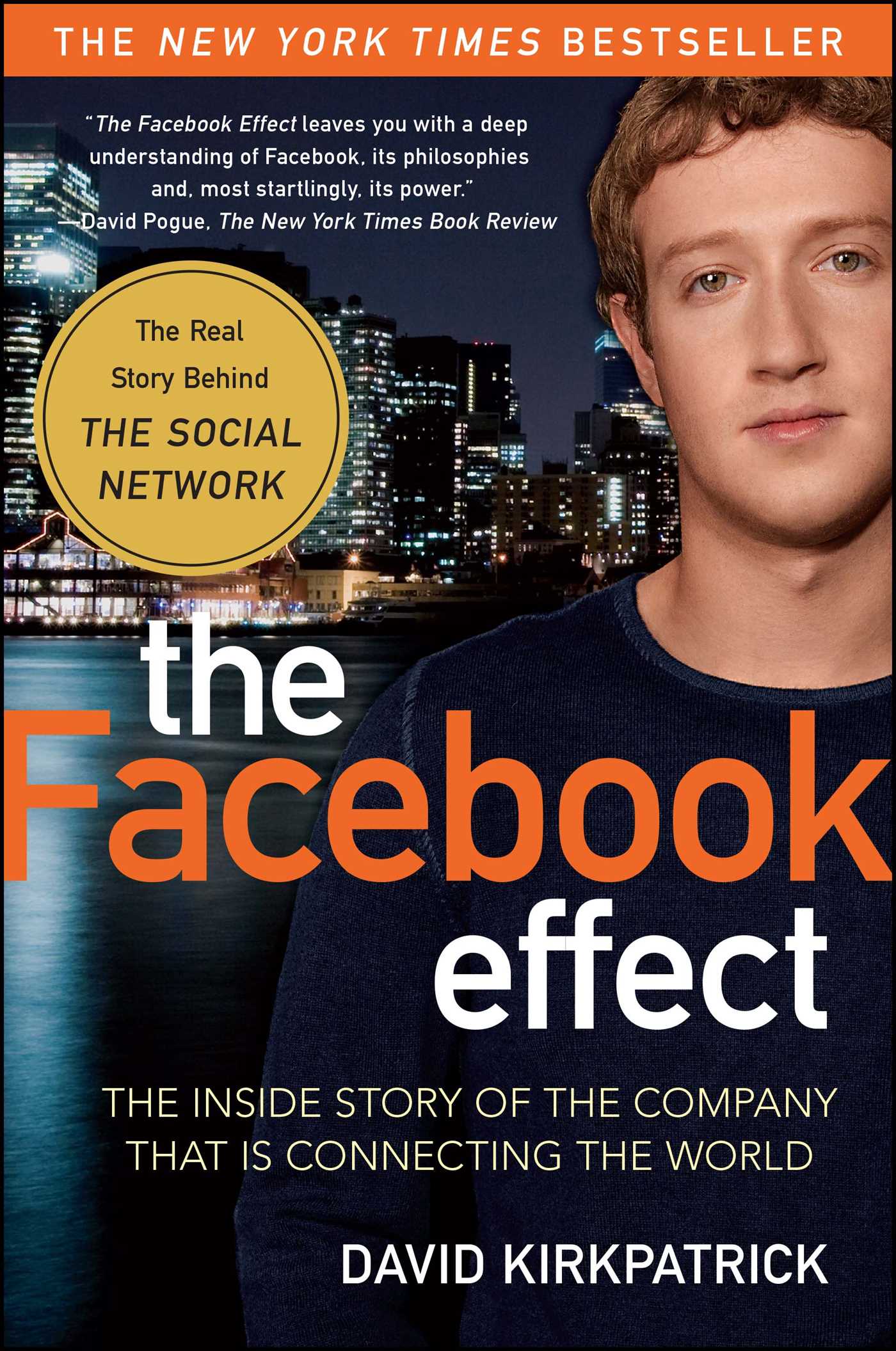
The Facebook Effect The exclusive inside story of Facebook and how it has revolutionized the way the world uses the Internet. “A fantastic book, filled with great reporting and colorful narrative†(Walter Isaacson). In little more than half a decade, Facebook has gone from a dorm-room novelty to a company with 500 million users. It is one of the fastest growing companies in history, an essential part of the social life not only of teenagers but hundreds of millions of adults worldwide. As Facebook spreads around the globe, it creates surprising effects—even becoming instrumental in political protests from Colombia to Iran. Veteran technology reporter David Kirkpatrick had the full cooperation of Facebook’s key executives in researching this fascinating history of the company and its impact on our lives. Kirkpatrick tells us how Facebook was created, why it has flourished, and where it is going next. He chronicles its successes and missteps, and gives readers the most complete assessment anywhere of founder and CEO Mark Zuckerberg, the central figure in the company’s remarkable ascent. This is the Facebook story that can be found nowhere else. How did a nineteen-year-old Harvard student create a company that has transformed the Internet and how did he grow it to its current enormous size? Kirkpatrick shows how Zuckerberg steadfastly refused to compromise his vision, insistently focusing on growth over profits and preaching that Facebook must dominate (his word) communication on the Internet. In the process, he and a small group of key executives have created a company that has changed social life in the United States and elsewhere, a company that has become a ubiquitous presence in marketing, altering politics, business, and even our sense of our own identity. This is the Facebook Effect. BUSINESS & ECONOMICS,E-Commerce,General (see also COMPUTERS,Electronic Commerce)
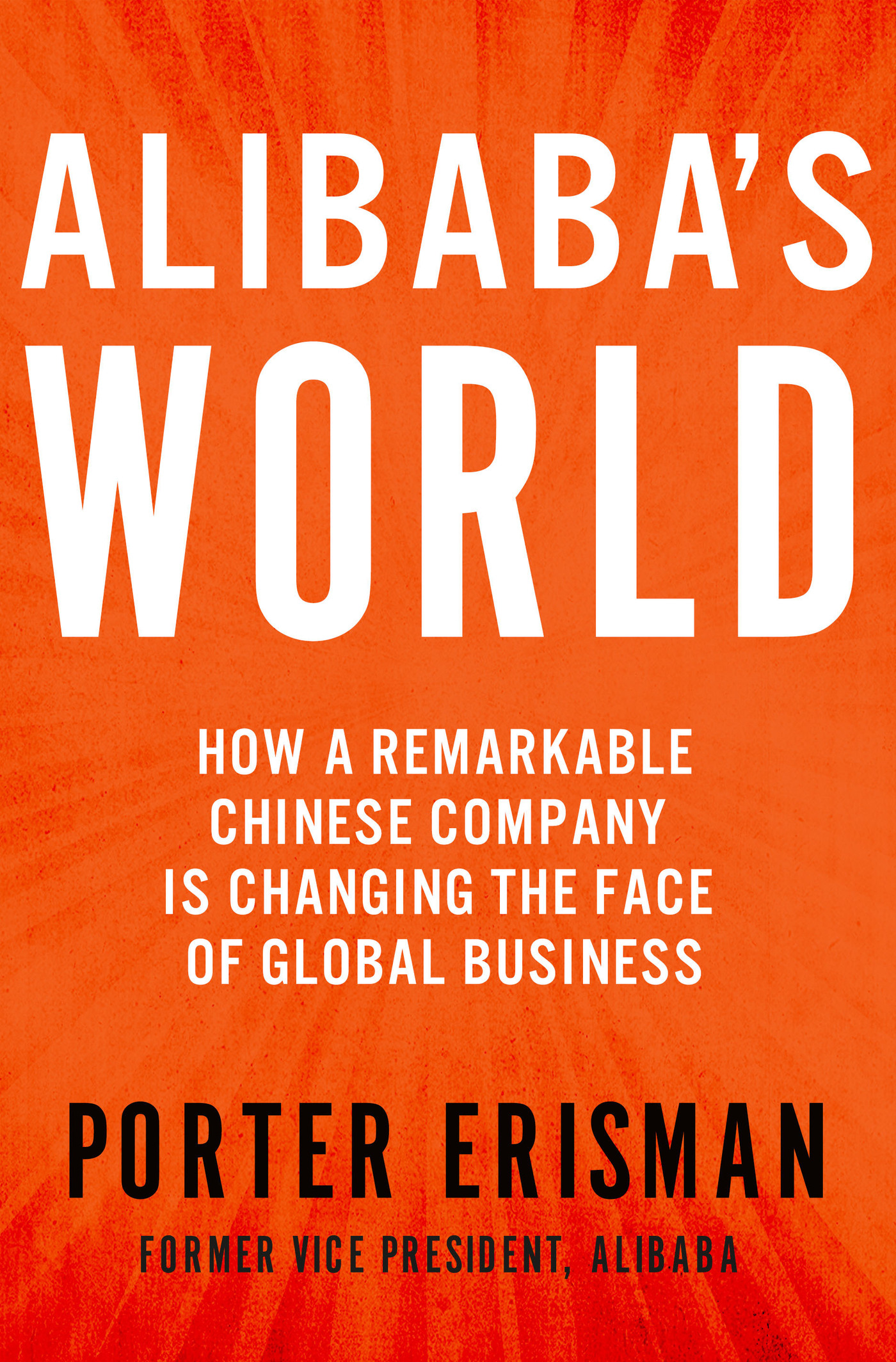
Alibaba's World A former VP at Alibaba Group, and creator of a documentary about its origins, offers an inside glimpse at the behemoth that's poised to transform the ecommerce world BUSINESS & ECONOMICS,E-Commerce,General (see also COMPUTERS,Electronic Commerce)
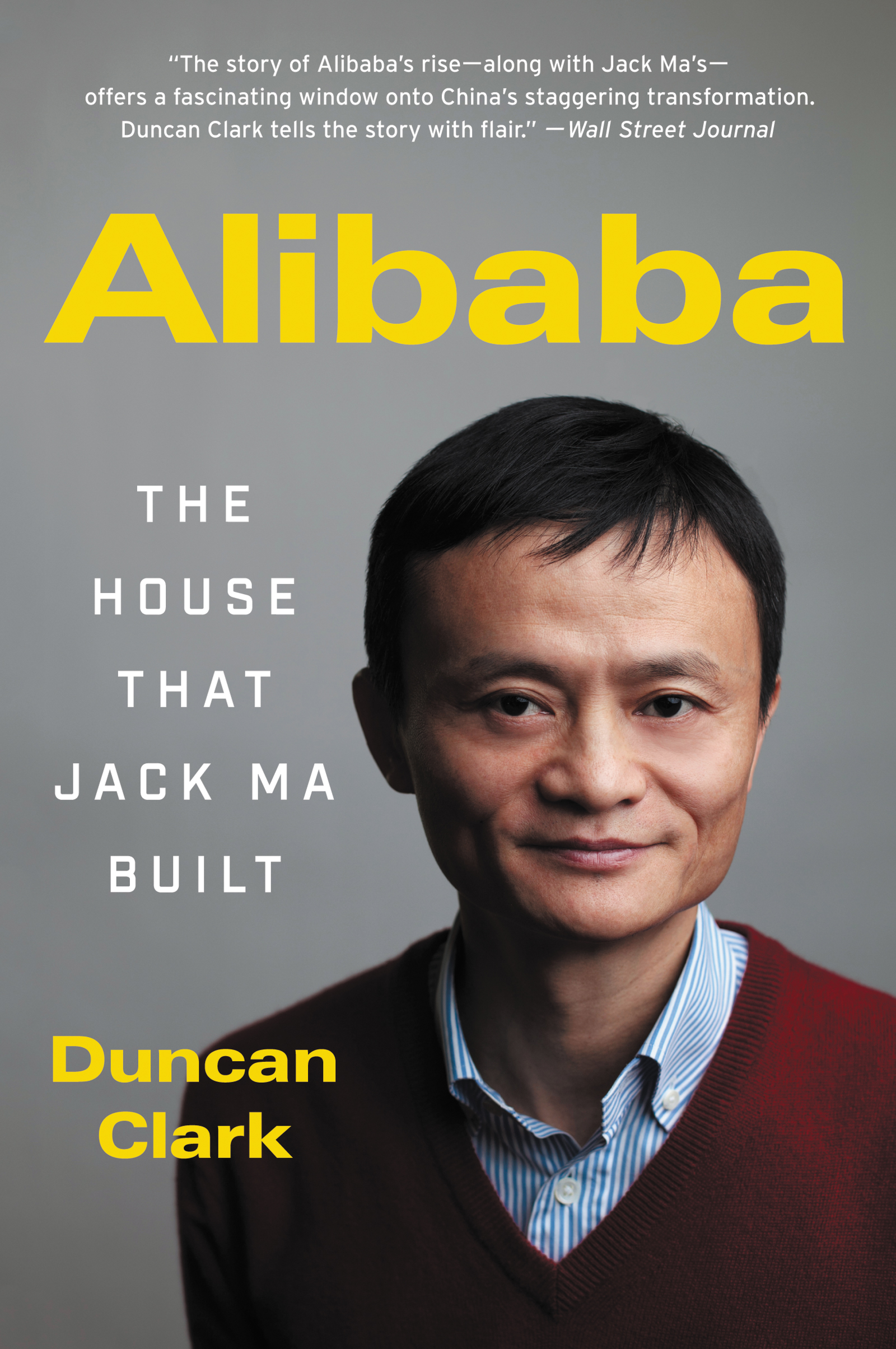
Alibaba In just a decade and half Jack Ma, a man who rose from humble beginnings and started his career as an English teacher, founded and built Alibaba into the second largest Internet company in the world. The company’s $25 billion IPO in 2014 was the world’s largest, valuing the company more than Facebook or Coca Cola. Alibaba today runs the e-commerce services that hundreds of millions of Chinese consumers depend on every day, providing employment and income for tens of millions more. A Rockefeller of his age, Jack has become an icon for the country’s booming private sector, and as the face of the new, consumerist China is courted by heads of state and CEOs from around the world. Granted unprecedented access to a wealth of new material including exclusive interviews, Clark draws on his own first-hand experience of key figures integral to Alibaba’s rise to create an authoritative, compelling narrative account of how Alibaba and its charismatic creator have transformed the way that Chinese exercise their new found economic freedom, inspiring entrepreneurs around the world and infuriating others, turning the tables on the Silicon Valley giants who have tried to stand in his way. Duncan explores vital questions about the company’s past, present, and future: How, from such unremarkable origins, did Jack Ma build Alibaba? What explains his relentless drive and his ability to outsmart his competitors? With over 80% of China’s e-commerce market, how long can the company hope to maintain its dominance? As the company sets its sights on the country’s financial and media markets, are there limits to Alibaba’s ambitions, or will the Chinese government act to curtail them? And as it set up shop from LA and San Francisco to Seattle, how will Alibaba grow its presence and investments in the US and other international markets? Clark tells Alibaba’s tale within the wider story of China’s economic explosion—the rise of the private sector and the expansion of Internet usage—that haver powered the country’s rise to become the world’s second largest economy and largest Internet population, twice the size of the United States. He also explores the political and social context for these momentous changes. An expert insider with unrivaled connections, Clark has a deep understanding of Chinese business mindset. He illuminates an unlikely corporate titan as never before, and examines the key role his company has played in transforming China while increasing its power and presence worldwide. BUSINESS & ECONOMICS,E-Commerce,General (see also COMPUTERS,Electronic Commerce)

E-Commerce Website Optimization Convert online traffic and increase revenue with this invaluable step-by-step guide to e-commerce website optimization. BUSINESS & ECONOMICS,E-Commerce,General (see also COMPUTERS,Electronic Commerce)
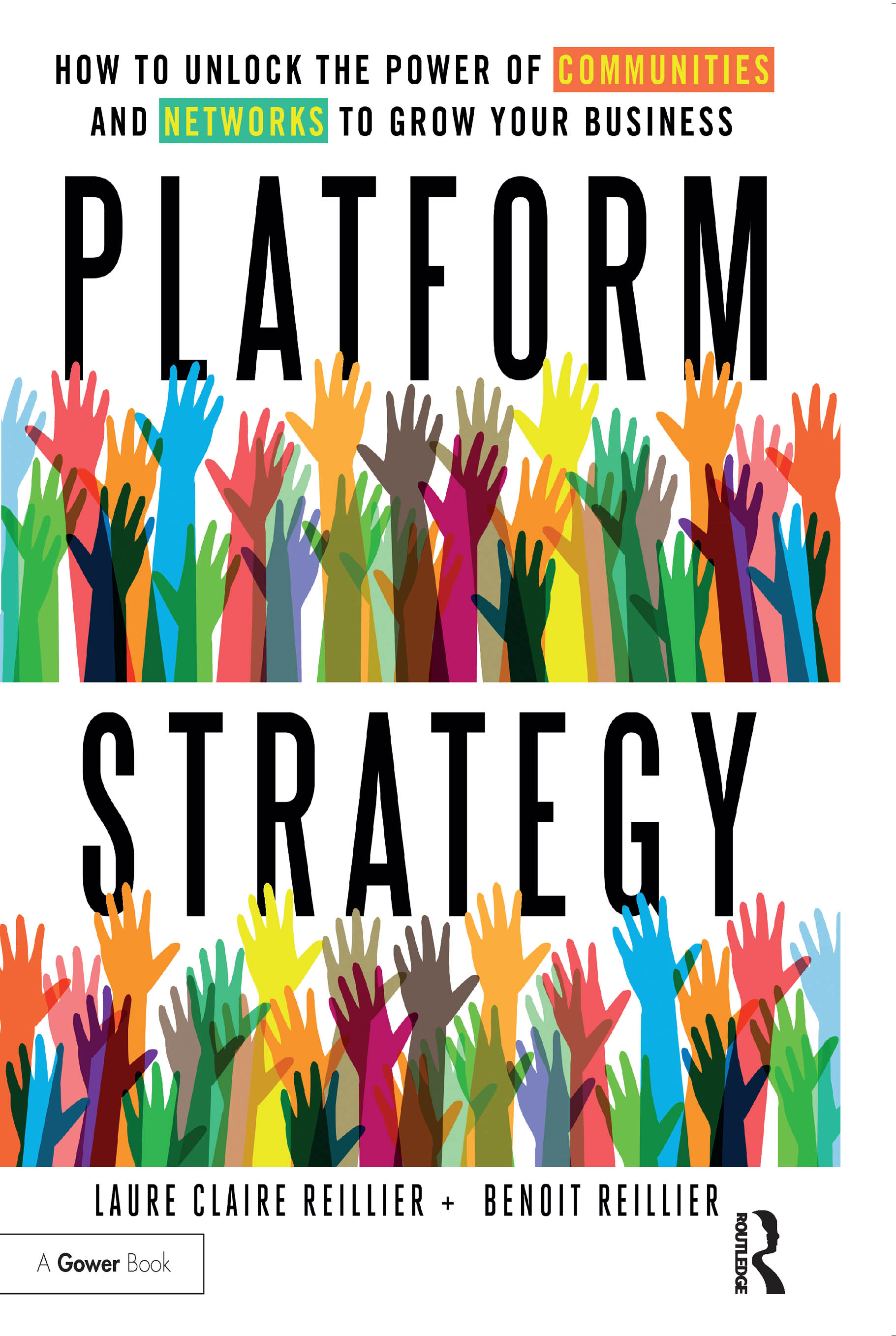
Platform Strategy During the last decade, platform businesses such as Uber, Airbnb, Amazon and eBay have been taking over the world. In almost every sector, traditional businesses are under attack from digital disrupters that are effectively harnessing the power of communities. But what exactly is a platform business and why is it different? In Platform Strategy, Laure Claire Reillier and Benoit Reillier provide a practical guide for students, digital entrepreneurs and executives to understand what platforms are, how they work and how you can build one successfully. Using their own "rocket model" and original case studies (including Google, Apple, Amazon), they explain how designing, igniting and scaling a platform business requires learning a whole new set of management rules. Platform Strategy also offers many fascinating insights into the future of platforms, their regulation and governance, as well as how they can be combined with other business models. Benoit Reillier and Laure Claire Reillier are co-founders of Launchworks, a leading advisory firm focused on helping organizations develop and scale innovative business models. BUSINESS & ECONOMICS,E-Commerce,General (see also COMPUTERS,Electronic Commerce)
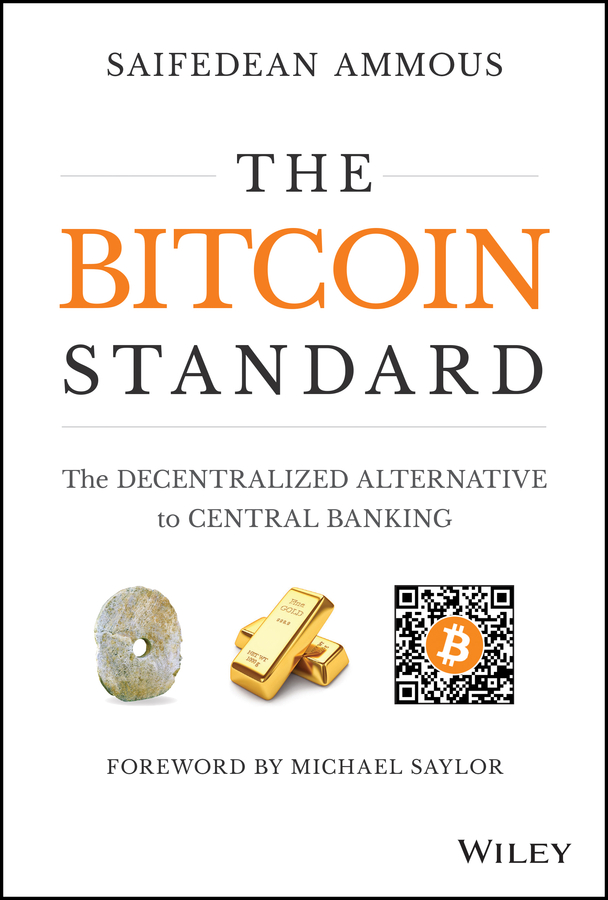
The Bitcoin Standard When a pseudonymous programmer introduced “a new electronic cash system that’s fully peer-to-peer, with no trusted third party†to a small online mailing list in 2008, very few paid attention. Ten years later, and against all odds, this upstart autonomous decentralized software offers an unstoppable and globally-accessible hard money alternative to modern central banks. The Bitcoin Standard analyzes the historical context to the rise of Bitcoin, the economic properties that have allowed it to grow quickly, and its likely economic, political, and social implications. While Bitcoin is a new invention of the digital age, the problem it purports to solve is as old as human society itself: transferring value across time and space. Ammous takes the reader on an engaging journey through the history of technologies performing the functions of money, from primitive systems of trading limestones and seashells, to metals, coins, the gold standard, and modern government debt. Exploring what gave these technologies their monetary role, and how most lost it, provides the reader with a good idea of what makes for sound money, and sets the stage for an economic discussion of its consequences for individual and societal future-orientation, capital accumulation, trade, peace, culture, and art. Compellingly, Ammous shows that it is no coincidence that the loftiest achievements of humanity have come in societies enjoying the benefits of sound monetary regimes, nor is it coincidental that monetary collapse has usually accompanied civilizational collapse. With this background in place, the book moves on to explain the operation of Bitcoin in a functional and intuitive way. Bitcoin is a decentralized, distributed piece of software that converts electricity and processing power into indisputably accurate records, thus allowing its users to utilize the Internet to perform the traditional functions of money without having to rely on, or trust, any authorities or infrastructure in the physical world. Bitcoin is thus best understood as the first successfully implemented form of digital cash and digital hard money. With an automated and perfectly predictable monetary policy, and the ability to perform final settlement of large sums across the world in a matter of minutes, Bitcoin’s real competitive edge might just be as a store of value and network for final settlement of large payments—a digital form of gold with a built-in settlement infrastructure. Ammous’ firm grasp of the technological possibilities as well as the historical realities of monetary evolution provides for a fascinating exploration of the ramifications of voluntary free market money. As it challenges the most sacred of government monopolies, Bitcoin shifts the pendulum of sovereignty away from governments in favor of individuals, offering us the tantalizing possibility of a world where money is fully extricated from politics and unrestrained by borders. The final chapter of the book explores some of the most common questions surrounding Bitcoin: Is Bitcoin mining a waste of energy? Is Bitcoin for criminals? Who controls Bitcoin, and can they change it if they please? How can Bitcoin be killed? And what to make of all the thousands of Bitcoin knock-offs, and the many supposed applications of Bitcoin’s ‘blockchain technology’? The Bitcoin Standard is the essential resource for a clear understanding of the rise of the Internet’s decentralized, apolitical, free-market alternative to national central banks. BUSINESS & ECONOMICS,E-Commerce,General (see also COMPUTERS,Electronic Commerce)
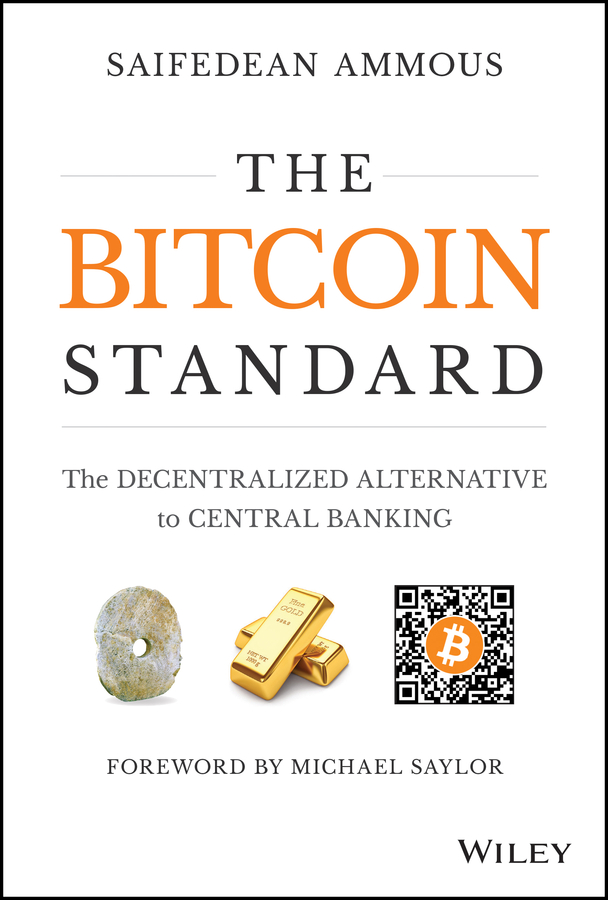
The Bitcoin Standard When a pseudonymous programmer introduced “a new electronic cash system that’s fully peer-to-peer, with no trusted third party†to a small online mailing list in 2008, very few paid attention. Ten years later, and against all odds, this upstart autonomous decentralized software offers an unstoppable and globally-accessible hard money alternative to modern central banks. The Bitcoin Standard analyzes the historical context to the rise of Bitcoin, the economic properties that have allowed it to grow quickly, and its likely economic, political, and social implications. While Bitcoin is a new invention of the digital age, the problem it purports to solve is as old as human society itself: transferring value across time and space. Ammous takes the reader on an engaging journey through the history of technologies performing the functions of money, from primitive systems of trading limestones and seashells, to metals, coins, the gold standard, and modern government debt. Exploring what gave these technologies their monetary role, and how most lost it, provides the reader with a good idea of what makes for sound money, and sets the stage for an economic discussion of its consequences for individual and societal future-orientation, capital accumulation, trade, peace, culture, and art. Compellingly, Ammous shows that it is no coincidence that the loftiest achievements of humanity have come in societies enjoying the benefits of sound monetary regimes, nor is it coincidental that monetary collapse has usually accompanied civilizational collapse. With this background in place, the book moves on to explain the operation of Bitcoin in a functional and intuitive way. Bitcoin is a decentralized, distributed piece of software that converts electricity and processing power into indisputably accurate records, thus allowing its users to utilize the Internet to perform the traditional functions of money without having to rely on, or trust, any authorities or infrastructure in the physical world. Bitcoin is thus best understood as the first successfully implemented form of digital cash and digital hard money. With an automated and perfectly predictable monetary policy, and the ability to perform final settlement of large sums across the world in a matter of minutes, Bitcoin’s real competitive edge might just be as a store of value and network for final settlement of large payments—a digital form of gold with a built-in settlement infrastructure. Ammous’ firm grasp of the technological possibilities as well as the historical realities of monetary evolution provides for a fascinating exploration of the ramifications of voluntary free market money. As it challenges the most sacred of government monopolies, Bitcoin shifts the pendulum of sovereignty away from governments in favor of individuals, offering us the tantalizing possibility of a world where money is fully extricated from politics and unrestrained by borders. The final chapter of the book explores some of the most common questions surrounding Bitcoin: Is Bitcoin mining a waste of energy? Is Bitcoin for criminals? Who controls Bitcoin, and can they change it if they please? How can Bitcoin be killed? And what to make of all the thousands of Bitcoin knock-offs, and the many supposed applications of Bitcoin’s ‘blockchain technology’? The Bitcoin Standard is the essential resource for a clear understanding of the rise of the Internet’s decentralized, apolitical, free-market alternative to national central banks. BUSINESS & ECONOMICS,E-Commerce,General (see also COMPUTERS,Electronic Commerce)

Electronic Commerce 2018 This new Edition of Electronic Commerce is a complete update of the leading graduate level/advanced undergraduate level textbook on the subject. Electronic commerce (EC) describes the manner in which transactions take place over electronic networks, mostly the Internet. It is the process of electronically buying and selling goods, services, and information. Certain EC applications, such as buying and selling stocks and airline tickets online, are reaching maturity, some even exceeding non-Internet trades. However, EC is not just about buying and selling; it also is about electronically communicating, collaborating, and discovering information. It is about e-learning, e-government, social networks, and much more. EC is having an impact on a significant portion of the world, affecting businesses, professions, trade, and of course, people. The most important developments in EC since 2014 are the continuous phenomenal growth of social networks, especially Facebook , LinkedIn and Instagram, and the trend toward conducting EC with mobile devices. Other major developments are the expansion of EC globally, especially in China where you can find the world's largest EC company. Much attention is lately being given to smart commerce and the use of AI-based analytics and big data to enhance the field. Finally, some emerging EC business models are changing industries (e.g., the shared economy models of Uber and Airbnb). The 2018 (9th) edition, brings forth the latest trends in e-commerce, including smart commerce, social commerce, social collaboration, shared economy, innovations, and mobility. BUSINESS & ECONOMICS,E-Commerce,General (see also COMPUTERS,Electronic Commerce)
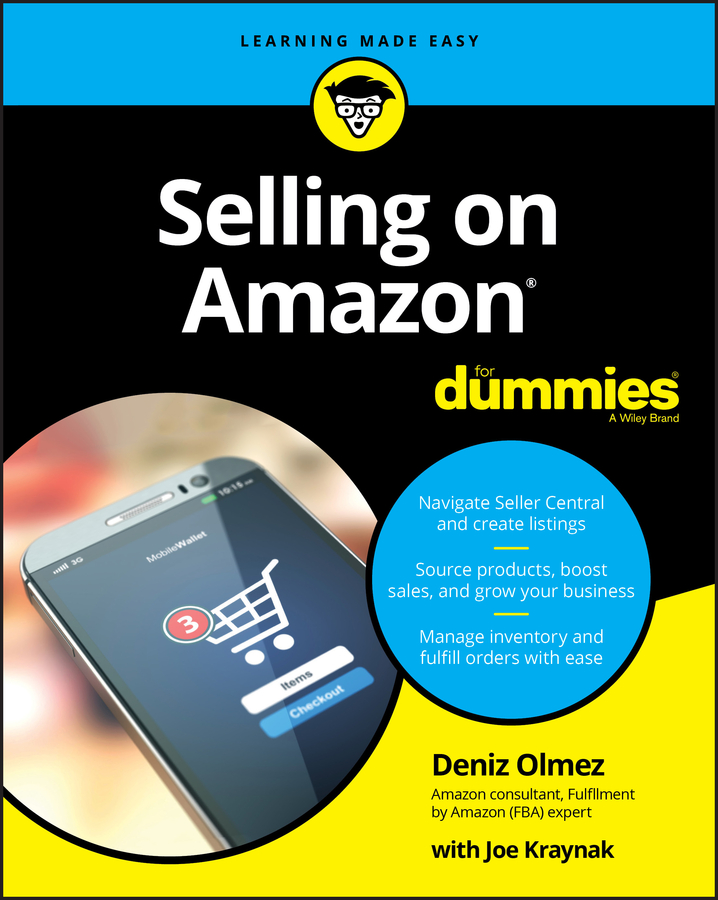
Selling on Amazon For Dummies Sell on Amazon and Make Them Do the Heavy Lifting Selling on Amazon has become one of the most popular ways to earn income online. In fact, there are over 2 million people selling on Amazon worldwide. Amazon allows any business, no matter how small, to get their products in front of millions of customers and take advantage of the largest fulfillment network in the world. It also allows businesses to leverage their first-class customer service and storage capabilities. Selling on Amazon For Dummies walks owners through the process of building a business on Amazon—a business that can be built almost anywhere in the world, as long as you have access to a computer and the internet. The basics of selling on Amazon Using FBA Getting started Deciding what to sell Conducting product research Finding your way around Seller Central Product sourcing, shipping and returns, Amazon subscription, fees, sales tax, and more How to earn ROIs (Returns on Your Investments) Selling on Amazon For Dummies provides the strategies, tools, and education you need, including turnkey solutions focused on sales, marketing, branding, and marketplace development to analyze and maximize opportunities. BUSINESS & ECONOMICS,E-Commerce,General (see also COMPUTERS,Electronic Commerce)
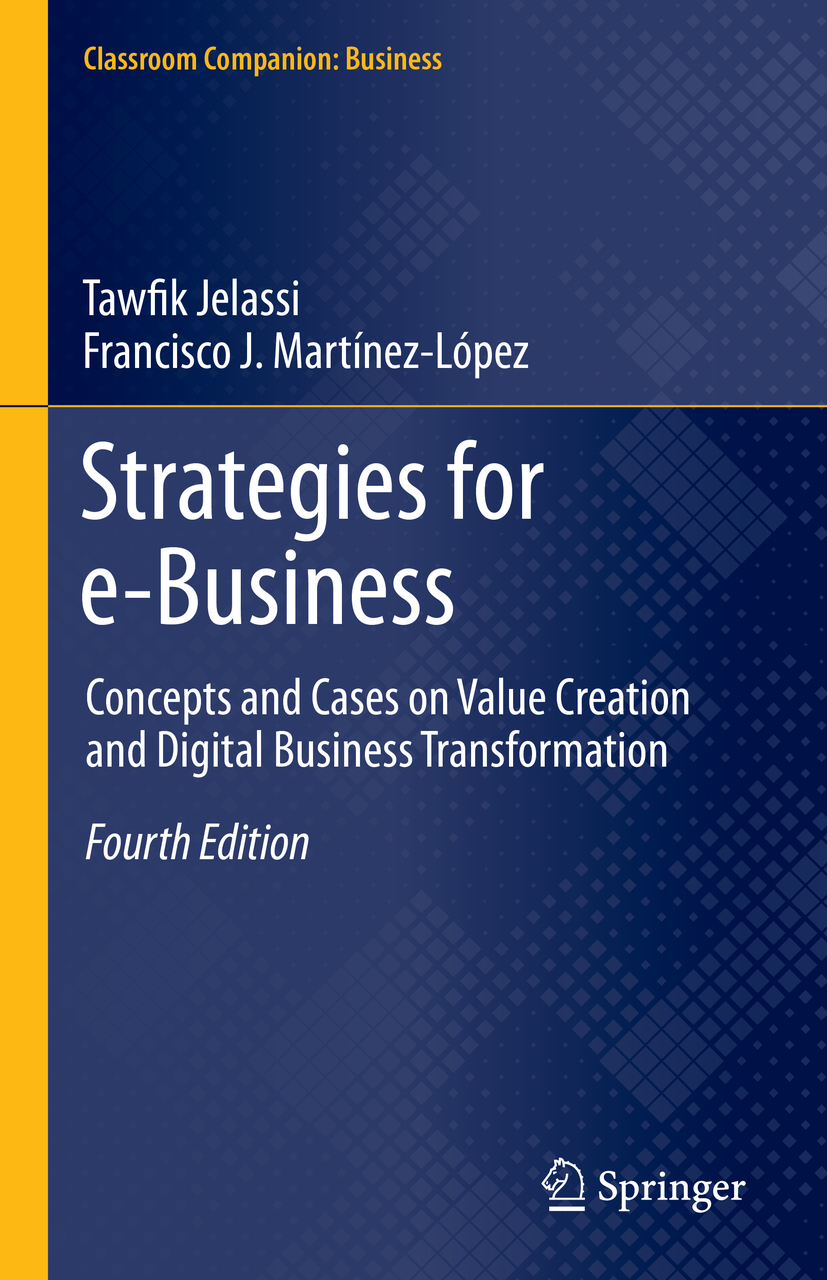
Strategies for e-Business This is the fourth edition of a unique textbook that provides extensive coverage of the evolution, the current state, and the practice of e-business strategies. It provides a solid introduction to understanding e-business and e-commerce by combining fundamental concepts and application models with practice-based case studies. An ideal classroom companion for business schools, the authors use their extensive knowledge to show how corporate strategy can imbibe and thrive by adopting vibrant e-business frameworks with proper tools. Students will gain a thorough knowledge of developing electronic and mobile commerce strategies and the methods to deal with these issues and challenges. BUSINESS & ECONOMICS,E-Commerce,General (see also COMPUTERS,Electronic Commerce)
compteur pour site











